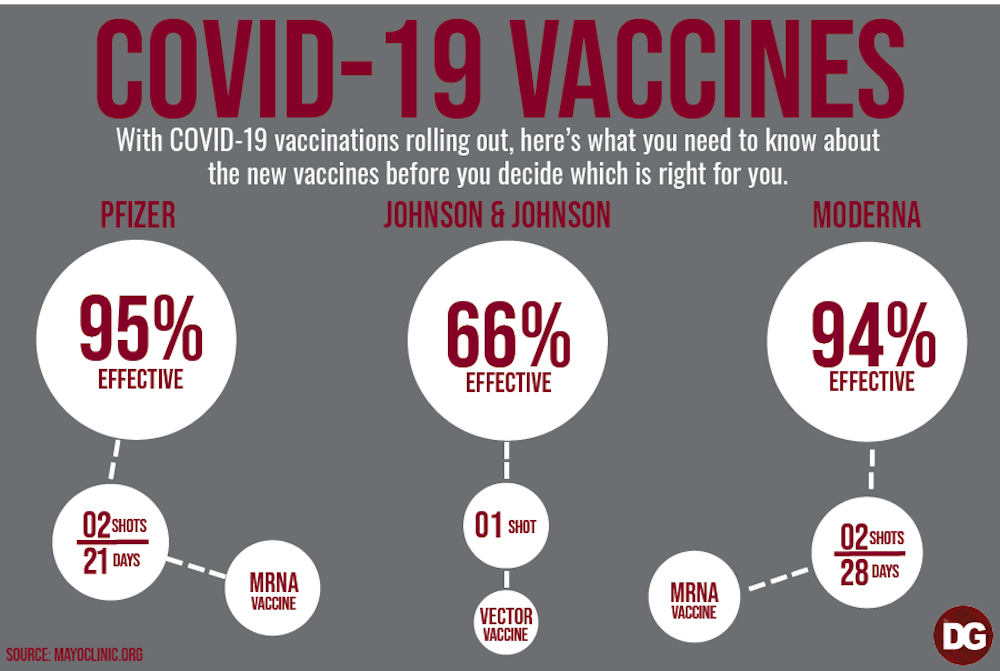As millions of people across the United States get vaccinated against COVID-19, many are quick to think their vaccine will immediately make life return to normal. They are wrong.
With the recent approval of Johnson & Johnson's vaccine, there are now three publicly available COVID-19 vaccines. While getting the COVID-19 vaccine does reduce the chances of contracting the disease, people who are vaccinated still need to follow safety regulations such as social distancing.
“The data has been submitted to show that the vaccines are safe and that they're effective in reducing the chance of contracting COVID. However, they don’t eliminate the chance of contracting COVID," Dr. Judy Chontos-Komorowski, the medical director of Student Health Services at USC, said.
Chontos-Komorowski said safety practices such as "face coverings, social distancing, avoiding crowds and hand hygiene" are still important.
Another question about the vaccine is whether it covers new strains, such as the variant detected in the U.K. and the South African variant detected in South Carolina in January, the first time that variant was seen in the U.S.
“We’re trying to track whether our vaccines … whether that's effective against these new strains," Chontos-Komorowski said. "The number one thing we need to focus on is reducing transmission because when there’s less transmission, we’re going to have less problems with emerging strains.”
It is still unknown if someone who is vaccinated could spread COVID-19 to someone who is unvaccinated, Chontos-Komorowski said, because that data was not collected during the research process. However, the CDC is working to gather such data so a definitive answer can be given to the public, according to Chontos-Komorowski.
If anyone is hoping to go back to the pre-quarantine days of no masks, no social distancing and the removal of strict regulations and such, they will have to wait just a bit longer. If we want those days back sooner, it is important to follow CDC guidelines.
Even so, the vaccine does lower the chance of contracting COVID-19, and it prevents the development of moderate to severe symptoms that might lead to hospitalization, Chontos-Komorowski said.
So, the vaccine, ironically, does generally render COVID-19 to be the harmless disease that detractors and conspiracy theorists have claimed it to be. These harmful and false theories that claimed COVID-19 was no worse than the flu or nonexistent in the first place have done their damage, but hopefully, any future damage can be prevented with the vaccine.
However, with the uncertainty of new strains and whether COVID-19 can be spread by those who have been vaccinated, it appears these unprecedented times must continue for the near future.
The COVID-19 vaccine is not a golden ticket to the reckless and carefree days before the pandemic, and it should not be treated as such by those who are fortunate enough to get vaccinated. There is still damage that can be done. So, for the time being, everyone must continue to follow the COVID-19 safety guidelines.
And while it's true that vaccinated people have been cleared to gather with others that have been vaccinated, only around 10.3% of Americans have been fully vaccinated. Therefore, it is still not the time for everyone to disregard the guidelines.
If everyone does their part and the vaccine rollout continues smoothly, perhaps those long-missed days will be right around the corner.

